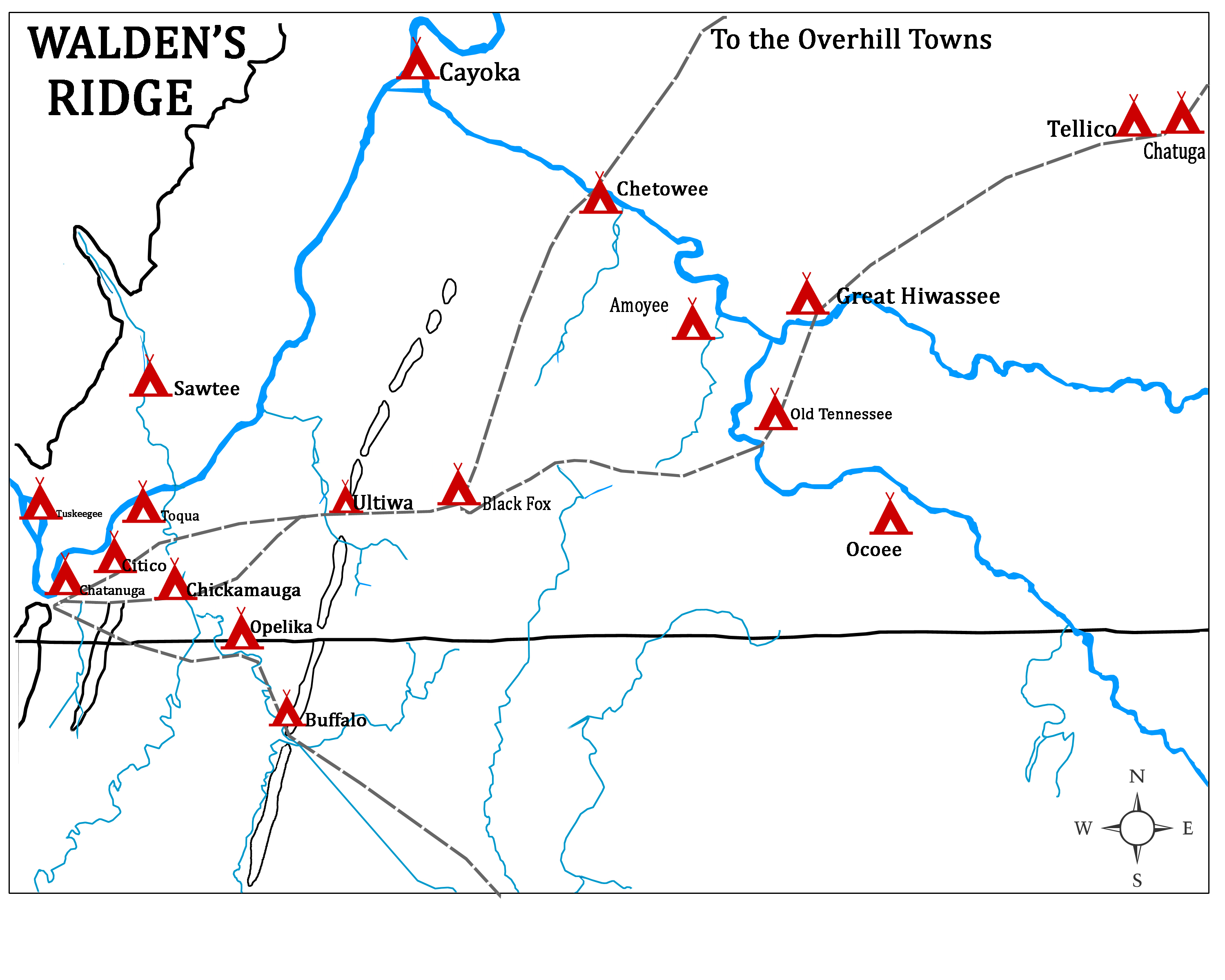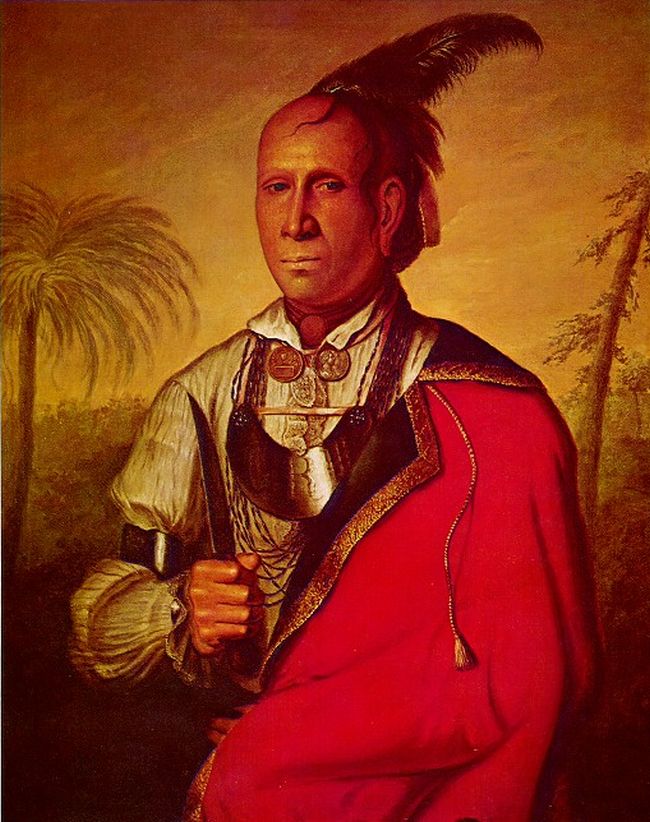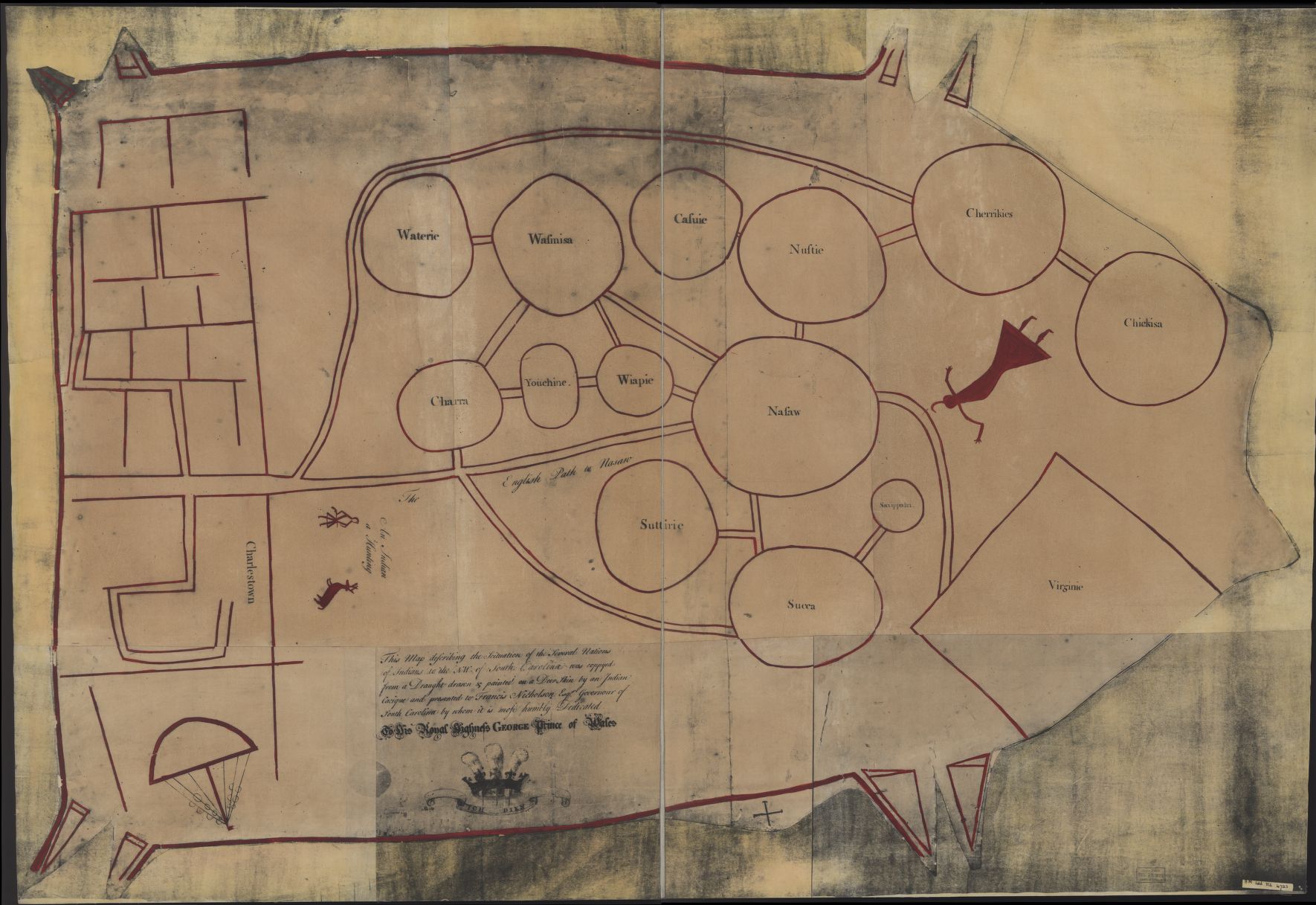|
Little Turkey
Little Turkey (1758–1801) was First Beloved Man of the Cherokee people, becoming, in 1794, the first Principal Chief of the original Cherokee Nation. Headman Little Turkey, born in 1758, was elected First Beloved Man by the general council of the Cherokee upon the re-establishment of the council's seat at Ustanali on the Conasauga River. This was following the murder of Corntassel in 1788. The United States acknowledged his rival, Hanging Maw of Coyatee, as the Cherokees' leading headman, but the larger part of the Cherokee themselves, including the Chickamauga Cherokee (or Lower Cherokee) who followed Dragging Canoe, recognized Little Turkey as leader. Following the end of the Cherokee–American wars The Cherokee–American wars, also known as the Chickamauga Wars, were a series of raids, campaigns, ambushes, minor skirmishes, and several full-scale frontier battles in the Old Southwest from 1776 to 1794 between the Cherokee and American se ... (1794) and the subsequ ... [...More Info...] [...Related Items...] OR: [Wikipedia] [Google] [Baidu] |
Cherokee
The Cherokee (; chr, ᎠᏂᏴᏫᏯᎢ, translit=Aniyvwiyaʔi or Anigiduwagi, or chr, ᏣᎳᎩ, links=no, translit=Tsalagi) are one of the indigenous peoples of the Southeastern Woodlands of the United States. Prior to the 18th century, they were concentrated in their homelands, in towns along river valleys of what is now southwestern North Carolina, southeastern Tennessee, edges of western South Carolina, northern Georgia, and northeastern Alabama. The Cherokee language is part of the Iroquoian language group. In the 19th century, James Mooney, an early American ethnographer, recorded one oral tradition that told of the tribe having migrated south in ancient times from the Great Lakes region, where other Iroquoian peoples have been based. However, anthropologist Thomas R. Whyte, writing in 2007, dated the split among the peoples as occurring earlier. He believes that the origin of the proto-Iroquoian language was likely the Appalachian region, and the split betw ... [...More Info...] [...Related Items...] OR: [Wikipedia] [Google] [Baidu] |
Conasauga River
The Conasauga River is a river that runs through southeast Tennessee and northwest Georgia. The Conasauga River is longU.S. Geological Survey. National Hydrography Dataset high-resolution flowline dataThe National Map, accessed April 27, 2011 and is home to 90 species of fish and 25 species of freshwater mussels. The Conasauga River watershed encompasses over in two states, multiple counties, and two ecologically different regions. Location The Conasauga River is the most westerly trout water on public land in Georgia. It is the only river in Tennessee that is not a part of the Mississippi River watershed. The only road access to the Conasauga is found via Old GA 2, GA 2, and Carlton Petty Road. Access via foot trail is located on Forest Service road (FS) 64 in Betty Gap. Three other trails descend from the west off FS 17 to intersect the river trail. From south to north they are the Chestnut Lead, , Tearbritches Trail, , and Hickory Creek Trail, . Primitive camping is allow ... [...More Info...] [...Related Items...] OR: [Wikipedia] [Google] [Baidu] |
1801 Deaths
Eighteen or 18 may refer to: * 18 (number), the natural number following 17 and preceding 19 * one of the years 18 BC, AD 18, 1918, 2018 Film, television and entertainment * ''18'' (film), a 1993 Taiwanese experimental film based on the short story ''God's Dice'' * ''Eighteen'' (film), a 2005 Canadian dramatic feature film * 18 (British Board of Film Classification), a film rating in the United Kingdom, also used in Ireland by the Irish Film Classification Office * 18 (''Dragon Ball''), a character in the ''Dragon Ball'' franchise * "Eighteen", a 2006 episode of the animated television series ''12 oz. Mouse'' Music Albums * ''18'' (Moby album), 2002 * ''18'' (Nana Kitade album), 2005 * '' 18...'', 2009 debut album by G.E.M. Songs * "18" (5 Seconds of Summer song), from their 2014 eponymous debut album * "18" (One Direction song), from their 2014 studio album ''Four'' * "18", by Anarbor from their 2013 studio album '' Burnout'' * "I'm Eighteen", by Alice Cooper commonly ... [...More Info...] [...Related Items...] OR: [Wikipedia] [Google] [Baidu] |
1758 Births
Events January–March * January 1 – Swedish biologist Carl Linnaeus (Carl von Linné) publishes in Stockholm the first volume (''Animalia'') of the 10th edition of ''Systema Naturae'', the starting point of modern zoological nomenclature, introducing binomial nomenclature for animals to his established system of Linnaean taxonomy. Among the first examples of his system of identifying an organism by genus and then species, Linnaeus identifies the lamprey with the name ''Petromyzon marinus''. He introduces the term ''Homo sapiens''. (Date of January 1 assigned retrospectively.) * January 20 – At Cap-Haïtien in Haiti, former slave turned rebel François Mackandal is executed by the French colonial government by being burned at the stake. * January 22 – Russian troops under the command of William Fermor invade East Prussia and capture Königsberg with 34,000 soldiers; although the city is later abandoned by Russia after the Seven Years' War ends, the ... [...More Info...] [...Related Items...] OR: [Wikipedia] [Google] [Baidu] |
Cherokee–American Wars
The Cherokee–American wars, also known as the Chickamauga Wars, were a series of raids, campaigns, ambushes, minor skirmishes, and several full-scale frontier battles in the Old Southwest from 1776 to 1794 between the Cherokee and American settlers on the frontier. Most of the events took place in the Upper South region. While the fighting stretched across the entire period, there were extended periods with little or no action. The Cherokee leader Dragging Canoe, whom some historians call "the Savage Napoleon", and his warriors, and other Cherokee fought alongside and together with warriors from several other tribes, most often the Muscogee in the Old Southwest and the Shawnee in the Old Northwest. During the Revolutionary War, they also fought alongside British troops, Loyalist militia, and the King's Carolina Rangers against the rebel colonists, hoping to expel them from their territory. Open warfare broke out in the summer of 1776 in the Overmountain settlements of the W ... [...More Info...] [...Related Items...] OR: [Wikipedia] [Google] [Baidu] |
Dragging Canoe
Dragging Canoe (ᏥᏳ ᎦᏅᏏᏂ, pronounced ''Tsiyu Gansini'', "he is dragging his canoe") (c. 1738 – February 29, 1792) was a Cherokee war chief who led a band of Cherokee warriors who resisted colonists and United States settlers in the Upper South. During the American Revolution and afterward, Dragging Canoe's forces were sometimes joined by Upper Muskogee, Chickasaw, Shawnee, and Indians from other tribes/nations, along with British Loyalists, and agents of France and Spain. The series of conflicts lasted a decade after the American Revolutionary War. Dragging Canoe became the preeminent war leader among the Indians of the southeast. He served as war chief, or ''skiagusta'', of the group known as the Chickamauga Cherokee (or "Lower Cherokee"), from 1777 until his death in 1792. He was succeeded by John Watts. Biography Born about 1738, he was the son of Attakullakulla ("Little Carpenter," a Nipissing Head Man) and ''Nionne Ollie'' ("Tame Doe" a Natchez adopted Che ... [...More Info...] [...Related Items...] OR: [Wikipedia] [Google] [Baidu] |
Chickamauga Cherokee
The Chickamauga Cherokee refers to a group that separated from the greater body of the Cherokee during the American Revolutionary War. The majority of the Cherokee people wished to make peace with the Americans near the end of 1776, following several military setbacks and American reprisals. The followers of the skiagusta (or red chief), Dragging Canoe, moved with him in the winter of 1776–77 down the Tennessee River away from their historic Overhill Cherokee towns. Relocated in a more isolated area, they established 11 new towns in order to gain distance from colonists' encroachments. The frontier Americans associated Dragging Canoe and his band with their new town on Chickamauga Creek and began to refer to them as the ''Chickamaugas.'' Five years later, the Chickamauga moved further west and southwest into present-day Alabama, establishing five larger settlements. They were then more commonly known as the ''Lower Cherokee''. This term was closely associated with the peop ... [...More Info...] [...Related Items...] OR: [Wikipedia] [Google] [Baidu] |
Old Tassel
Old Tassel Reyetaeh (sometimes Corntassel) (Cherokee language: ''Utsi'dsata''), (died 1788), was "First Beloved Man" (the equivalent of a regional Cherokee chief) of the Overhill Cherokee after 1783, when the United States gained independence from Great Britain. He worked to try to keep the Cherokee people of the Overhill region out of the Cherokee–American wars being fought between the European-American frontiersmen and the Chickamauga band warriors led by Dragging Canoe. He was murdered in 1788 along with another chief at Chilhowee by white settlers under a flag of truce. Family Old Tassel's brothers were the warriors Pumpkin Boy and Doublehead. His maternal nephew was John Watts, known as "Young Tassel." Known history Old Tassel became "First Beloved Man" of the Overhill Cherokee in 1783, after the tribal elders removed his predecessor, The Raven of Chota (also known as ''Savanukah''). An advocate of peace, Old Tassel strove—with only some success—to keep the ... [...More Info...] [...Related Items...] OR: [Wikipedia] [Google] [Baidu] |
Ustanali
New Town( chr, ᎤᏍᏔᎾᎵ, translit=Ustanali) is an unincorporated community in Gordon County, Georgia, United States, located northeast of Calhoun. New Town is near the New Echota historic site, which was formerly part of the Cherokee Nation. Ashworth Middle School and Gordon Central High School are located in the New Town community. New Town is the English translation of the historic Cherokee name, ''Ustanali.'' Geography Alan Creek is a small stream located in New Town. It is a tributary of the Oostanaula River, part of the Coosa-Alabama-Mobile River watershed and is located near the New Echota Historic Site New Echota was the capital of the Cherokee Nation in the Southeast United States from 1825 until their forced removal in the late 1830s. New Echota is located in present-day Gordon County, in northwest Georgia, 3.68 miles north of Calhoun. I .... References Unincorporated communities in Gordon County, Georgia Unincorporated communities in Georgia (U ... [...More Info...] [...Related Items...] OR: [Wikipedia] [Google] [Baidu] |
First Beloved Man
Principal Chief is today the title of the chief executives of the Cherokee Nation, of the Eastern Band of Cherokee Indians, and of the United Keetoowah Band of Cherokee Indians, the three federally recognized tribes of Cherokee. In the eighteenth century, when the people were primarily organized by clans and towns, they would appoint a leader for negotiations with the Europeans. They called him ''Uku'', or "First Beloved Man". The title of "Principal Chief" was created in 1794, when the Cherokee began to formalize a more centralized political structure. They founded the original Cherokee Nation. The Cherokee Nation–East adopted a written constitution in 1827, creating a government with three branches: legislative, executive, and judicial. The Principal Chief was elected by the National Council, which was the legislature of the Nation. The Cherokee Nation–West adopted a similar constitution in 1833. In 1839 most of the reunited nation was reunited in Indian Territory, after f ... [...More Info...] [...Related Items...] OR: [Wikipedia] [Google] [Baidu] |
Cherokee Nation (1794–1907)
The Cherokee Nation (Cherokee: ᏣᎳᎩᎯ ᎠᏰᎵ, pronounced ''Tsalagihi Ayeli'') was a legal, autonomous, tribal government in North America recognized from 1794 to 1907. It was often referred to simply as "The Nation" by its inhabitants. The government was effectively disbanded in 1907, after its land rights had been extinguished, prior to the admission of Oklahoma as a state. During the late 20th century, the Cherokee people reorganized, instituting a government with sovereign jurisdiction known as the Cherokee Nation. On July 9, 2020, the United States Supreme Court ruled that the Muscogee (Creek) Nation (and by extension the Cherokee Nation) had never been disestablished in the years before allotment and Oklahoma Statehood. The Cherokee Nation consisted of the Cherokee (ᏣᎳᎩ —pronounced ''Tsalagi'' or ''Cha-la-gee'') people of the Qualla Boundary and the southeastern United States; those who relocated voluntarily from the southeastern United States to the ... [...More Info...] [...Related Items...] OR: [Wikipedia] [Google] [Baidu] |
Cherokee People
The Cherokee (; chr, ᎠᏂᏴᏫᏯᎢ, translit=Aniyvwiyaʔi or Anigiduwagi, or chr, ᏣᎳᎩ, links=no, translit=Tsalagi) are one of the indigenous peoples of the Southeastern Woodlands of the United States. Prior to the 18th century, they were concentrated in their homelands, in towns along river valleys of what is now southwestern North Carolina, southeastern Tennessee, edges of western South Carolina, northern Georgia, and northeastern Alabama. The Cherokee language is part of the Iroquoian language group. In the 19th century, James Mooney, an early American ethnographer, recorded one oral tradition that told of the tribe having migrated south in ancient times from the Great Lakes region, where other Iroquoian peoples have been based. However, anthropologist Thomas R. Whyte, writing in 2007, dated the split among the peoples as occurring earlier. He believes that the origin of the proto-Iroquoian language was likely the Appalachian region, and the split between Norther ... [...More Info...] [...Related Items...] OR: [Wikipedia] [Google] [Baidu] |






